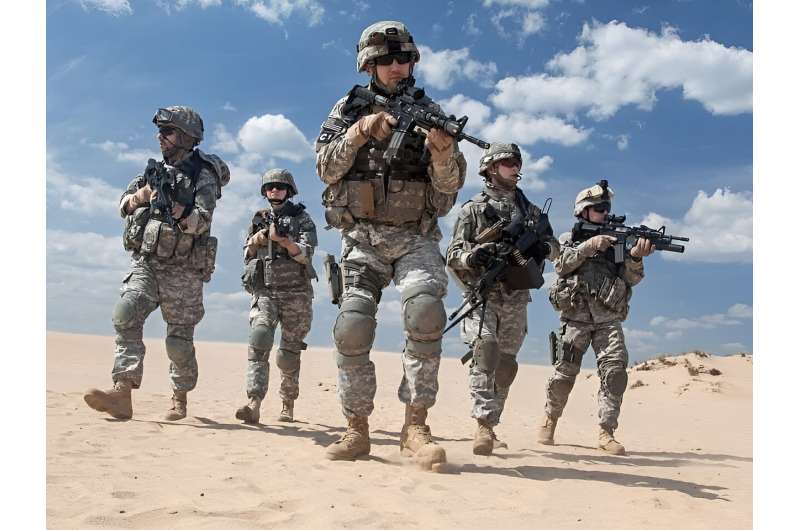This article has been reviewed according to Science X's editorial process and policies. Editors have highlighted the following attributes while ensuring the content's credibility:
fact-checked
reputable news agency
proofread
Military service can bring melanoma danger

U.S. military veterans, especially those who served in the Air Force, are at high risk for one of the deadliest skin cancers, melanoma.
The risk owes to work hazards associated with service in countries near the equator where ultraviolet (UV) levels are higher.
Long-term exposure to radiation from flying at higher altitudes puts Air Force vets at even higher risk.
"Most members of the military tend to serve when they're younger, which is when cellular mutations that cause cancer over time can start to develop," Dr. Rebecca Hartman, chief of dermatology at VA Boston Healthcare System, said during a presentation Friday at the American Academy of Dermatology (AAD) annual meeting in San Diego.
"Challenges in practicing effective sun protection, like inadequate access to sunscreen or protective clothing, and not having access to sun protection in times of conflict, contribute to this risk," she added in a meeting news release.
Exposure to UV light increases risk for skin cancer.
Hartman presented a review of recent studies at the meeting. She noted that many Iraq War veterans have said they rarely used skin protection or weren't aware of their skin cancer risk.
"Over 40 percent said that they were not aware of the risks for skin cancer, and nearly 75 percent said they worked outside more than six hours a day," she said.
Most Iraq vets reported being sunburned.
The average risk of melanoma doubles when a person has more than five sunburns. A single burn in childhood or adolescence more than doubles the odds of melanoma later in life.
Air Force veterans face an additional melanoma risk—ionizing radiation from high-altitude flight, Hartman pointed out. Those who fly should wear sunscreen and be screened frequently for skin cancer, she said.
While vets are more likely to be diagnosed when melanoma has advanced and is harder to treat, Hartman said they tend to have better outcomes than the population as a whole. That's due to immunotherapy treatments, which work throughout the body.
"Immunotherapy tends to work better in men than women, and it works better for those who are older compared to those who are younger, mainly because younger people and women generally have strong immune systems that can eliminate tumor cells efficiently, and the remaining cells may not be easily detected by the immune system," Hartman said. "This makes certain types of immunotherapy less effective for younger people and women."
Troops can reduce their melanoma risk by seeking shade, wearing sun-protective clothing and applying a sunscreen with an SPF of 30 or higher, Hartman said.
"It's important for those in the military to use sun protection, especially when they're in sunny areas, and for both military members and veterans to look for changes in their skin regularly," she said.
More information: The American Society of Clinical Oncology has a guide to melanoma symptoms.
Copyright © 2024 HealthDay. All rights reserved.



















